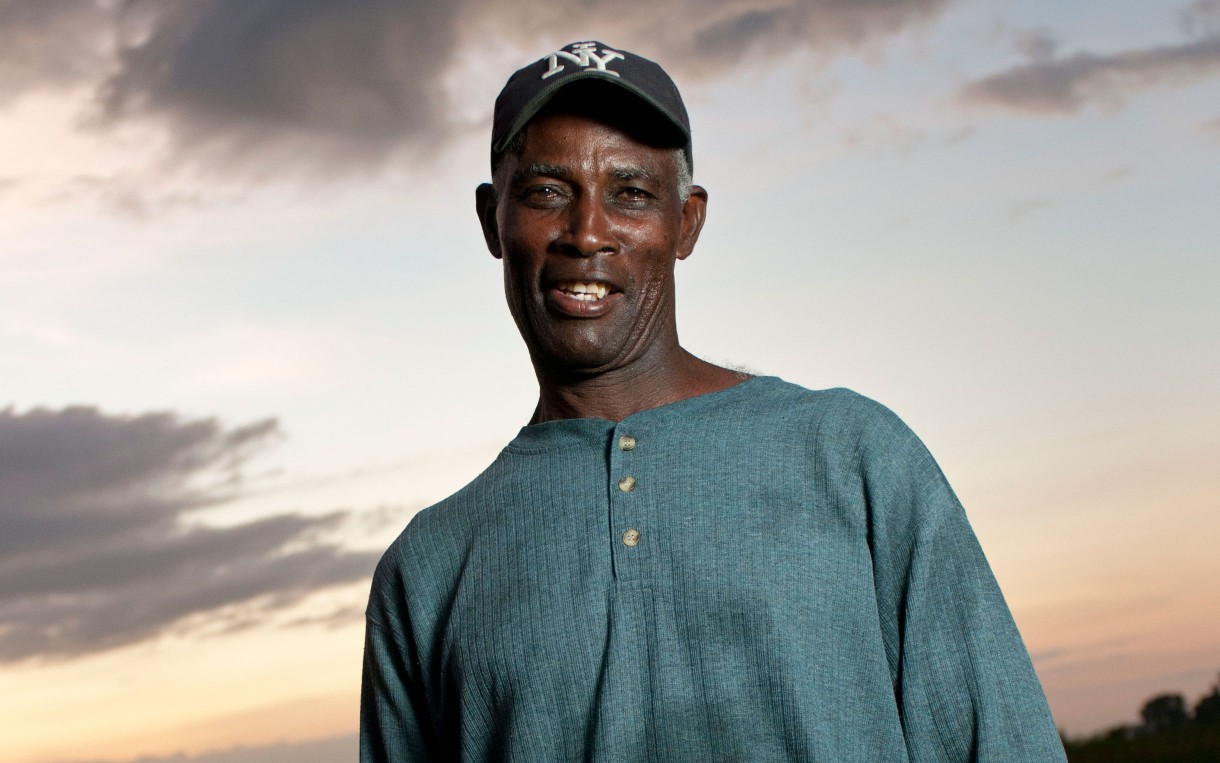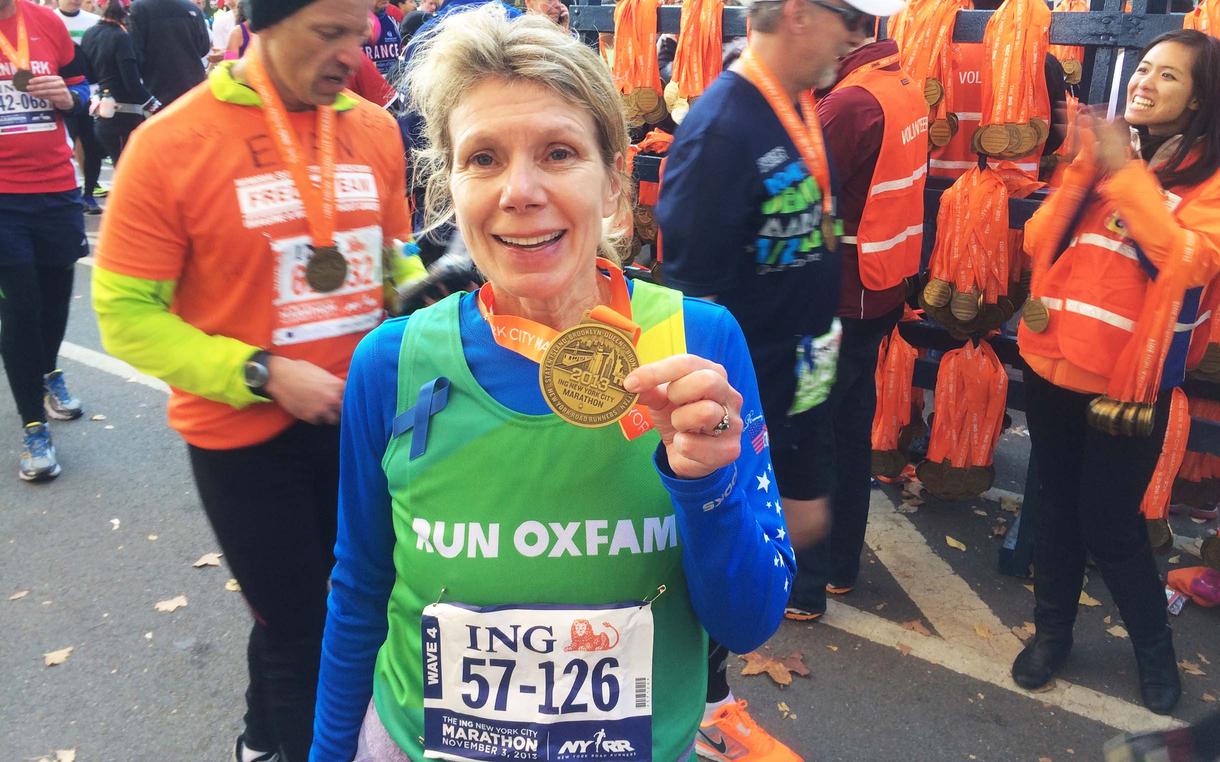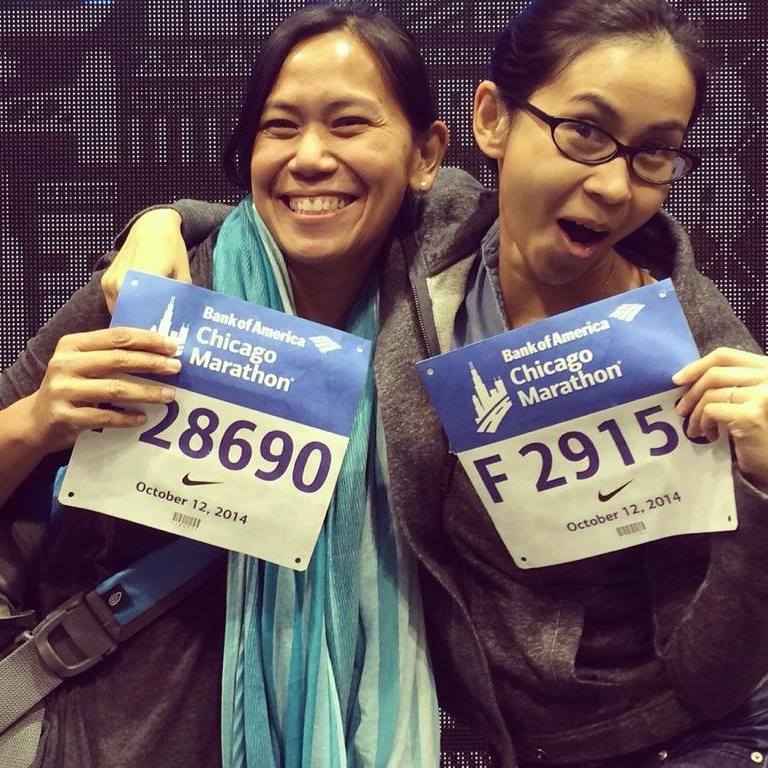How much energy does it take to farm all day? Enough to run a marathon
 Ynodil Fils has been growing rice in the Artibonite river valley in Haiti since 1973. Photo: Brett Eloff/Oxfam America
Ynodil Fils has been growing rice in the Artibonite river valley in Haiti since 1973. Photo: Brett Eloff/Oxfam America
I sometimes look at the people involved in the projects Oxfam is helping make possible and wonder if I could ever possibly work as hard as they do.
The farmers in particular are impressive: People like rice farmer Ynodyl Fils, who was 63 when I met him in Haiti in 2011, looked like he could come right off the bench in a Celtics game and hold his own just fine. He told me years of hard work had kept him fit, but I also suspect his diet has something to do with it. He likely burns more calories than he takes in, and that’s probably the case with many farmers struggling to grow enough food to get through the lean times in the growing season, while crops are growing and the food they produced last season is nearly finished.
So, I wonder, how many calories do farmers burn during a day at work? I tried to look it up on the internet and found a calorie calculator and plugged in my particulars (5’ 10”, 155 pounds, 54 years old) and picked “Farming/Feeding Livestock” as an activity for 480 minutes (eight hours). Total calories burned: 2,678. Monsieur Fils would probably burn more as he is bigger and taller than I am. A smaller woman, a few less. I imagine many farmers in poor countries work much harder than that, and women who carry water and firewood over long distances on top of farm work probably expend quite a bit more calories. Eight hours is a short day for them.
Running and burning for Oxfam
You know who else burns those kinds of calories? Marathon runners. “A 130 lb. runner will burn 2,224 calories during a marathon, a 165 lb. runner will burn 2,822 calories, and a 210 lb. runner will burn 3,593 calories,” according to the Cleveland Clinic Center for Consumer Health.”
There’s a team of 28 runners raising money for Oxfam competing in the New York Marathon on November 1st, and they are training and figuring out how to load up enough carbs to make it without hitting the proverbial wall and bonking (becoming hypoglycemic). As if that’s not enough, they each committed to raising $3,250 for Oxfam. (That might be around $1/calorie for some of the larger members of the team, which seems reasonable given the amount of effort. Anyone else out there like to give us $1 per calorie burned?)

Check out the team members and consider making a contribution. One of them is Piet Eeckhout, who says on his profile page that he struggles to find enough energy on his longer training runs. “You need to drink and eat while running, and that is not so easy,” he says. “Still experimenting with power bars, gels, and sports drinks.”
There’s also Cathy Junia, whose father grew up in Tacloban, the Philippines city hit by Typhoon Haiyan in 2013 and one of the main areas of Oxfam’s response to that storm. “As my THANK YOU to the work they’ve done — and continue to do — in Tacloban, I’ve decided to run my FIRST NYC Marathon with a bright Oxfam-green jersey on my back…” she says on her profile page.
Junia tells me that her attitude towards food has completely changed thanks to her commitment to running. “It became clear that unless I dramatically reduce my intake of processed sugar, starch, and processed food, there was just no way I’d get through the marathon injury-free,” she wrote in an email. She now tries to stick with “a lot of greens, brown rice (instead of white!), quinoa, chicken, fish… The diet switch helped a lot! Suddenly, I had more energy and it felt like I recovered from long runs much faster.”
To keep from bonking during the race, she says she and her teammates eat pasta the night before, then “On the day itself, it’s all about Shot Bloks and water. Although I won’t lie, I do indulge in the treats spectators hand out during the run, so if someone hands me a gyro or a bagel in NY, I’ll probably have a bite or two…”

Junia has other connections to Oxfam: She’s the director of communications and Development at Interfaith Worker Justice, with whom Oxfam collaborates on advocacy related to increasing the minimum wage in the US, and most recently on a report calling on poultry processing companies to improve conditions for workers in processing plants.
“This Sunday, I will run the marathon in memory of those who have died in the hands of greed and injustice,” she wrote me, “and for the millions more who suffer under their clutches: They are the people of Tacloban and other victims of climate change; they are the poultry workers and many others who are forced to work under dangerous conditions and paid poverty wages.”